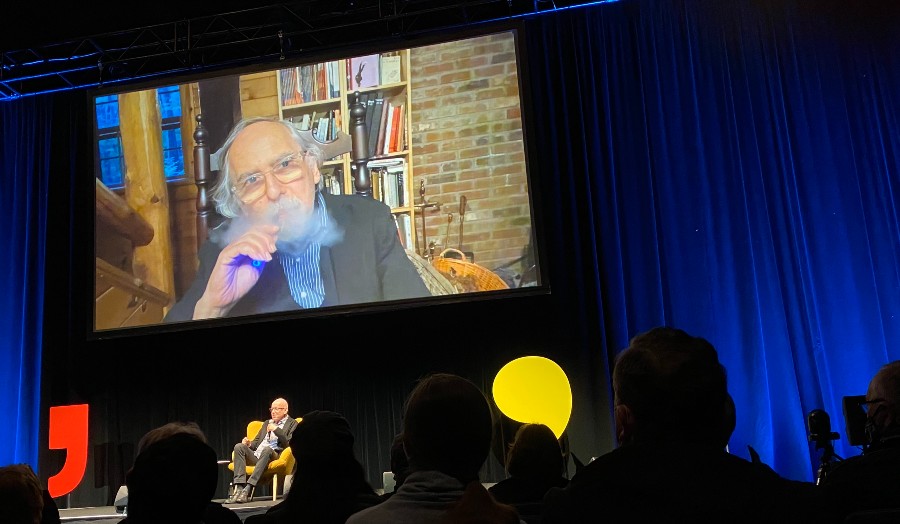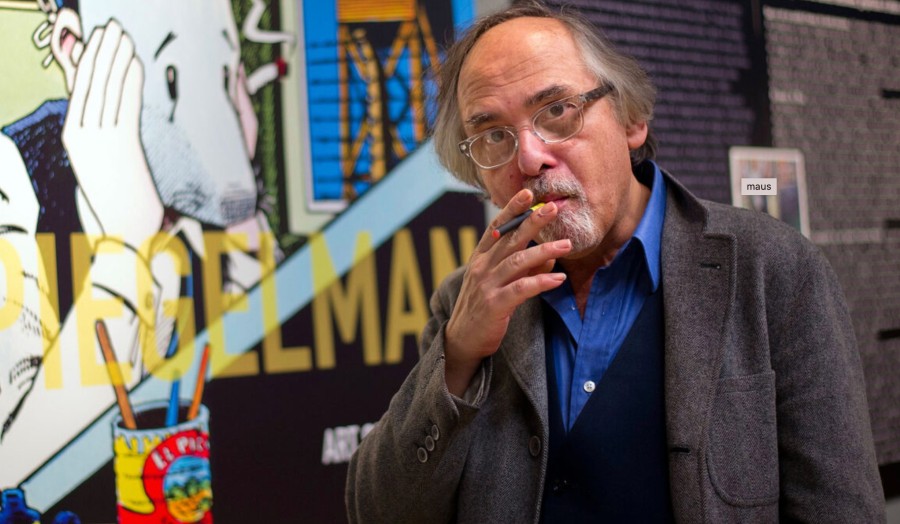Art Spiegelman spoke about book banning and all things Maus in a lively conversation with Morris Gleitzman at this year’s Sydney Writers Festival.
Iconic cartoonist, and graphic novelist Art Spiegelman, best known for his groundbreaking graphic novel, Maus, fronted up to the Sydney Writers Festival this morning, albeit, via zoom, he was nonetheless in fine form, displaying his charismatic cheeky, intelligent, e-cigarette smoking self, from the comfort of a cosy cabin tucked away somewhere with his wife and long time collaborator in all things print, Françoise Mouly – quietly eavesdropping in the background – to partake in a lively conversation with Morris Gleitzman.
Sharing stories of his youth, Spiegelman joked about how he would hide in the library to keep away from baseball – to avoid having a ball thrown at him – to read the daily comic strips in the newspaper, which was hugely influential in terms of gravitating towards a career, a career that his father would go on to question “you can make a living out of that?” He went on to reflect on some pretty major career highlights and discussed the challenges of the conventions and prejudices that come with working in the comic book industry. In particular, the recent book ban in America.

Earlier this year, the Tennessee Board of Education voted to remove Spiegelman’s iconic Pulitzer Prize-winning graphic novel Maus from its classrooms, due to what they consider “rough, objectionable language” and nudity – one very small illustration of Spiegelman’s mother, nude in a bathtub having died by suicide – also note, the rough language, is the word ‘Damn’. Spiegelman, who is quite possibly one of the coolest comic artists in America, went on to call the school board’s response “daffily myopic.”
Spiegelman went on to share what he thought were a few of the main reasons the Tennessee Board of Education wanted Maus banned.
Firstly, to keep children in a position of powerlessness, lest they ever think it’s okay to question authority or to question or stand up to their parents in any way.
Second, he sees it as a push for parents to take their children out of public schools and re-enrol their children in Christian schools. Where there’s less chance of reading books or other material that they consider unsafe or unchristian.
And thirdly, to Christianise Auschwitz, much in the way he thinks they did with Schindler’s List. Because let’s face it, Maus is an eye-opener if there ever was one, with first-hand stories taken from real-life conversations with Spiegelman’s father, making for a very compelling, astonishing, and deeply moving work of art, as much as it was when it was first published in 1980.
Immensely sophisticated and generous analysis of memory, visual storytelling and the creation of Maus by Art Spiegelman @SydWritersFest pic.twitter.com/7jIdAS7CIF
— Kate Evans (@HistoryGirlKate) May 20, 2022
Forty-two years later, it’s not lost any of its relevance or power, and to prove a point – largely due to the recent banning bringing it back into the spotlight – Maus is currently back on the bestsellers list again, taking up the number spot on the Amazon top sellers.
Please do yourself a favor and borrow, buy or steal a copy of Art Spiegelman’s Maus before Republicans make it impossible for you to read.
— Frank Mitman (@frankdpi) May 20, 2022
Spiegelman, dazzled, he shone brightly and shared some very cool insights into his work and life, then with a puff of his e-cigarette, which he somehow makes look very cool, he graciously disappeared into a puff of vapour.



